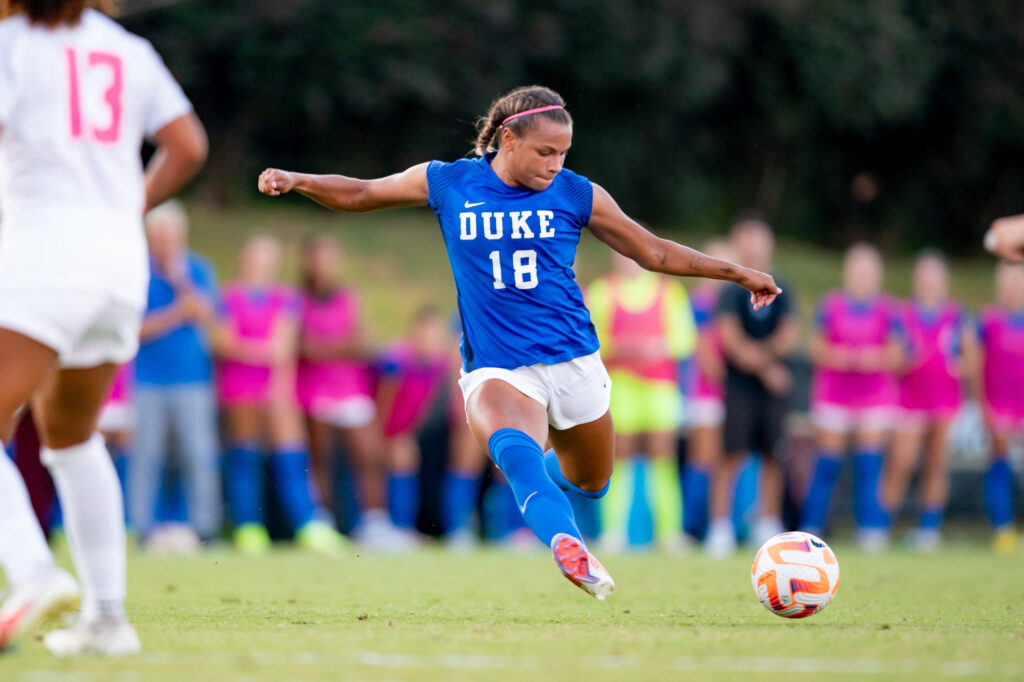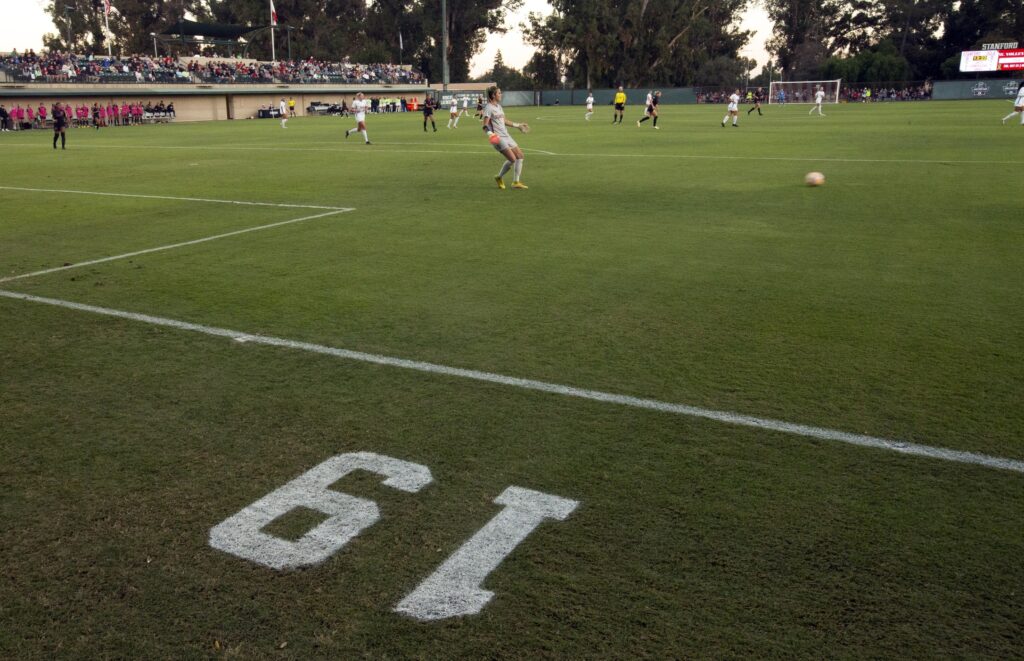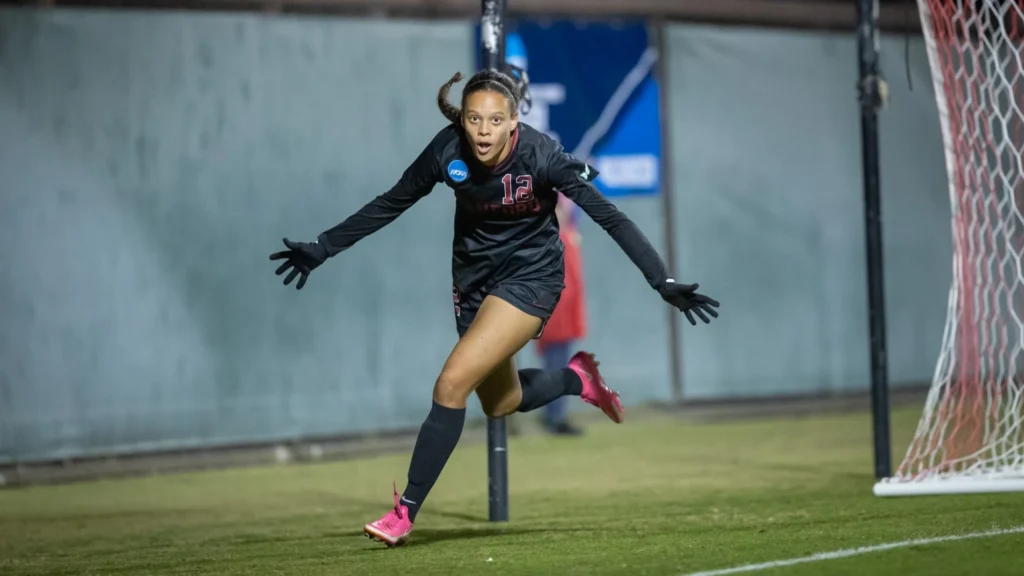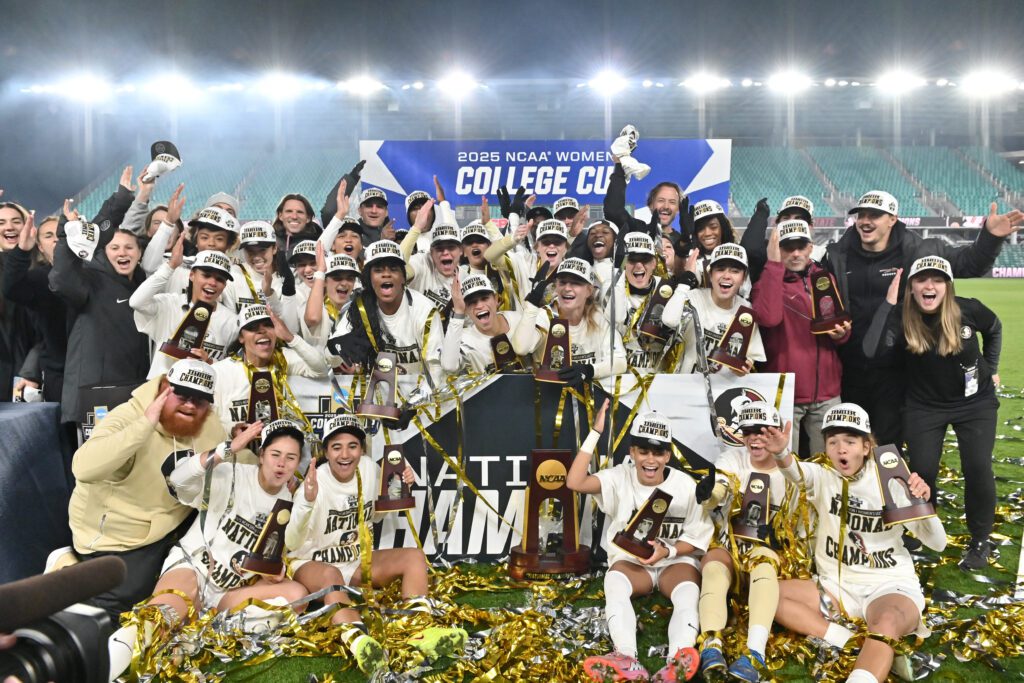Duke sophomore Michelle Cooper announced on Monday that she’ll be foregoing her remaining college eligibility to begin her professional soccer career in 2023.
“This was such a difficult decision, but one that I made with my heart and the people I trust dearly,” the 20-year-old wrote in a statement. The Blue Devils’ 2022 season ended in a quarterfinal loss to Alabama in November, in which Cooper scored a brace.
Transitioning to the professional game won’t be a huge leap for Cooper, who scored 19 goals and registered 11 assists this season, leading Duke in both categories by a significant margin.
She also captained the U-20 U.S. women’s national team in both the Concacaf Championship and the World Cup, scoring eight goals in Concacaf qualifying to win the Golden Boot as well as the Golden Ball as the tournament’s best player. She scored her final U-20 goal in the World Cup in August, as the U.S. bowed out of a very difficult group stage.
THERE IT IS! 🇺🇸🤩
— FOX Soccer (@FOXSoccer) August 11, 2022
Michelle Cooper scores the first goal for the @USYNT in the U-20 FIFA Women's World Cup! 🙌 pic.twitter.com/Jc85BtShs6
Cooper’s credentials place her in the upper echelon of young American-born talent, but her jump to the pros is also a larger reflection of the way the sport is changing.
Traditionally, even the top women’s college players would sometimes choose to stay in school for their full eligibility, valuing a college scholarship and degree over a professional salary. But as salary opportunities grow year after year in the professional game, norms have begun to change, and Cooper might be just the first of several underclassmen this year to make the same decision.
Tierna Davidson and Sophia Smith left Stanford early to become the first picks in their respective NWSL College Drafts, but both had already featured for the U.S. women’s national team, lending more weight to the decision. Cooper has yet to be called into the U.S. senior team, but she joins a growing group of prospects who have chosen to develop outside of the college game.
Ashley Sanchez (since capped with the USWNT), Brianna Pinto and Mia Fishel made similar decisions to leave college after their junior years. Emily Madril of Florida State recently made a unique jump of her own, forgoing her college eligibility to sign with the NWSL directly, and then going on loan before joining the league through the 2023 College Draft.
Adding to the ease of the process are Name, Image and Likeness rights, which allow college players to sign with an agency without having to make a quick decision to give up NCAA eligibility. Cooper, before her big announcement, had already signed with Wasserman Group (which represents a number of USWNT and NWSL players) and New Balance.
Fans in the U.S., however, will have to wait to see if Cooper follows Pinto and Sanchez to the NWSL, or if she takes a page from Fishel and Catarina Macario’s book and jumps at an opportunity abroad. U.S.-based clubs have the benefit of the NWSL’s new CBA, but Cooper wouldn’t yet qualify for allocation money — setting her salary limit at a non-allocated max contract, which is currently $75,000.
The NWSL also doesn’t have the benefit of player choice for those entering the league; even top talent has to opt into the College Draft. Unlike basketball, the NWSL is competing with leagues that don’t adhere to parity rules, and they occasionally lose talent that wants to be in control of their own destiny.
Whether she hears her name called on the NWSL Draft stage in Philadelphia in January or makes a splashy signing abroad, Cooper is ready for the next level. Fans will just have to wait and see where she takes her talents.
Thank you Duke🤍 pic.twitter.com/6YNjb2cjeV
— michelle cooper (@michelle1cooper) December 5, 2022
Claire Watkins is a Staff Writer at Just Women’s Sports. Follow her on Twitter @ScoutRipley.




